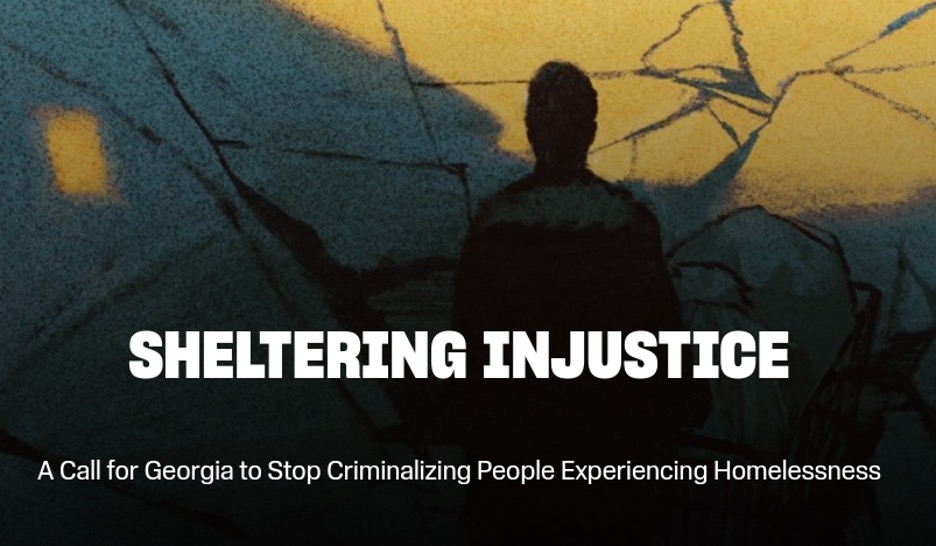 |
The SPLC calls on legislators to end the draconian policies that criminalize and exploit people experiencing homelessness... Friend, Access to safe, stable housing is a human right. In the United States, however, the deprivation of this right leads to inequitable housing access. As a result, in addition to people with disabilities and members of the LGBTQ+ community, people of color — especially Black people — are more likely to experience homelessness or be at risk of homelessness. Compounding this challenge for people of color and people with disabilities is the disproportionate likelihood that they will become ensnared in our nation’s mass incarceration crisis. This intersection of housing inaccessibility and criminalization has resulted in the pernicious practice of the criminalization of people experiencing homelessness, a pressing issue across the country — including in the Deep South. As SPLC’s Sheltering Injustice report, written by SPLC Eradicating Poverty Policy Analyst Gina Azito Thompson, highlights, this practice has taken deep root in Georgia. First, the statistics on homelessness are staggering: Since 2017, the rate of people experiencing homelessness has increased by at least 6%, according to the United States Department of Housing and Urban Development (HUD). A recent Harvard report found more than half of renters across the country could not afford to pay rent in 2022, meaning thousands more are at risk of homelessness and subsequent arrest. In Georgia alone there were over 10,000 people experiencing homelessness across the state. Between 2017 and 2022, Black people accounted for 29% of the total population of Athens-Clarke County yet 40% of the unsheltered individual population. With rent and the cost of the basics skyrocketing, the lack of affordable housing results in more and more people experiencing homelessness. And second, with more people experiencing homelessness, more people are at risk of interactions with law enforcement that can lead to their criminalization for engaging in basic life-sustaining activities. For example, 1 in 8 Atlanta city jail bookings in 2022 were of people experiencing homelessness. And Georgia laws are contributing to this criminalization wave. Last year, Georgia passed SB 62, a law that forces cities and towns to enforce bans on public camping, punishing people for simply sitting or sleeping in public places. Today, Georgia, along with other states in the Deep South, continues to push egregious legislation that only harms people already struggling to survive instead of providing solutions that address the economic crisis many face today. The SPLC calls on legislators to end the draconian policies that criminalize and exploit people experiencing homelessness for simply existing. Overall, according to Azito Thompson, “there is a better, proven way to combat homelessness by helping people access housing and other resources they need to not only survive but to thrive. People should be met with resources and housing, not punishment and law enforcement.” In solidarity, Your friends at the Southern Poverty Law Center
|
||
| |
||
|
||
|
|
||
|
|
